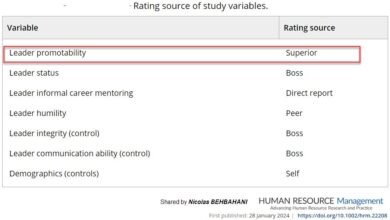
By | Abhijit Bhaduri |Keynote speaker, Author and Columnist
When we celebrate ‘fake-it-till-you-make-it’, charismatic leaders like the Theranos founder tend to focus on faking it
Drawing blood
This week, a federal court in the US found Theranos founder, Elizabeth Holmes, guilty on multiple counts of fraud. What went wrong with this company that once wanted to “change the world”? At its peak, Theranos was valued as a ‘decacorn’ with its $10bn market cap. Elizabeth Holmes was on the cover of every business magazine. She described herself as the female version of Steve Jobs.
Her claim was the wonder machine called Edison that Theranos used, could diagnose medical conditions from prostate cancer to pregnancy with just a drop of blood. They had the attention of Fortune 500 companies and were growing nationwide. Her charismatic presence mesmerised everyone.
The courts recently found out that Theranos had no such superpowers. They were using the same diagnostic machines that everyone else was. This was a case of ‘fake-it-till-you-make-it’ going horribly wrong. It is a bigger reminder to the rest of us to rethink what leadership looks like.
Only three ways to influence others
There are only three ways to influence others. Using our analytical ability. Using brute force. Using charm to persuade others.
When leaders use reason, they must look for data and evidence to persuade their followers. Parents often stand firm when children insist on doing something irrational. The third method, charm, is all about emotional manipulation, not reason. Charismatic leaders influence others by charm.
Steve Jobs, her role model, was charismatic and he knew it
Elizabeth Holmes said that she modeled herself on Steve Jobs right down to the trademark jeans and black turtleneck that Jobs popularised. Jobs was charismatic, and he knew it. His “reality distortion” was a mix of charm, charisma, bravado, hyperbole, marketing, appeasement, and persistence. He used that to persuade coders to meet impossible design specs and deadlines. The result was the iPhone that changed many dozens of industries from news to music. When his charm did not work, Jobs turned abusive and manipulative, even with his loved ones.
Did Elizabeth Holmes have a wrong role model?
We need to stop looking for charisma as a precondition of leadership
There are moments when we need a charismatic leader to reignite belief and resilience in a team after a crushing defeat. But we need to stop looking for charisma as a precondition of leadership. Most psychopaths use charisma to hide their anti-social tendencies. Narcissists damage institutions because they spend more time preening for the cameras than in doing the hard work that leadership demands.
Charismatic leaders seldom groom successors. Any emerging leader is seen as a threat and ruthlessly crushed, till everyone agrees that there is no alternative. When organisations promote people into leadership roles without scientific assessment, charisma and self-promotion wins. Humility and competence are overlooked. The charismatic person’s flamboyance before the superiors and decision makers is often matched by bullying the peers and juniors.
Leadership roles demand that a leader must balance priorities and often make unpopular choices. When we celebrate ‘fake-it-till-you-make-it’, charismatic leaders tend to focus on faking it – not working towards making it happen.
Republished with permission and originally published at Abhijit Bhaduri’s LinkedIn








